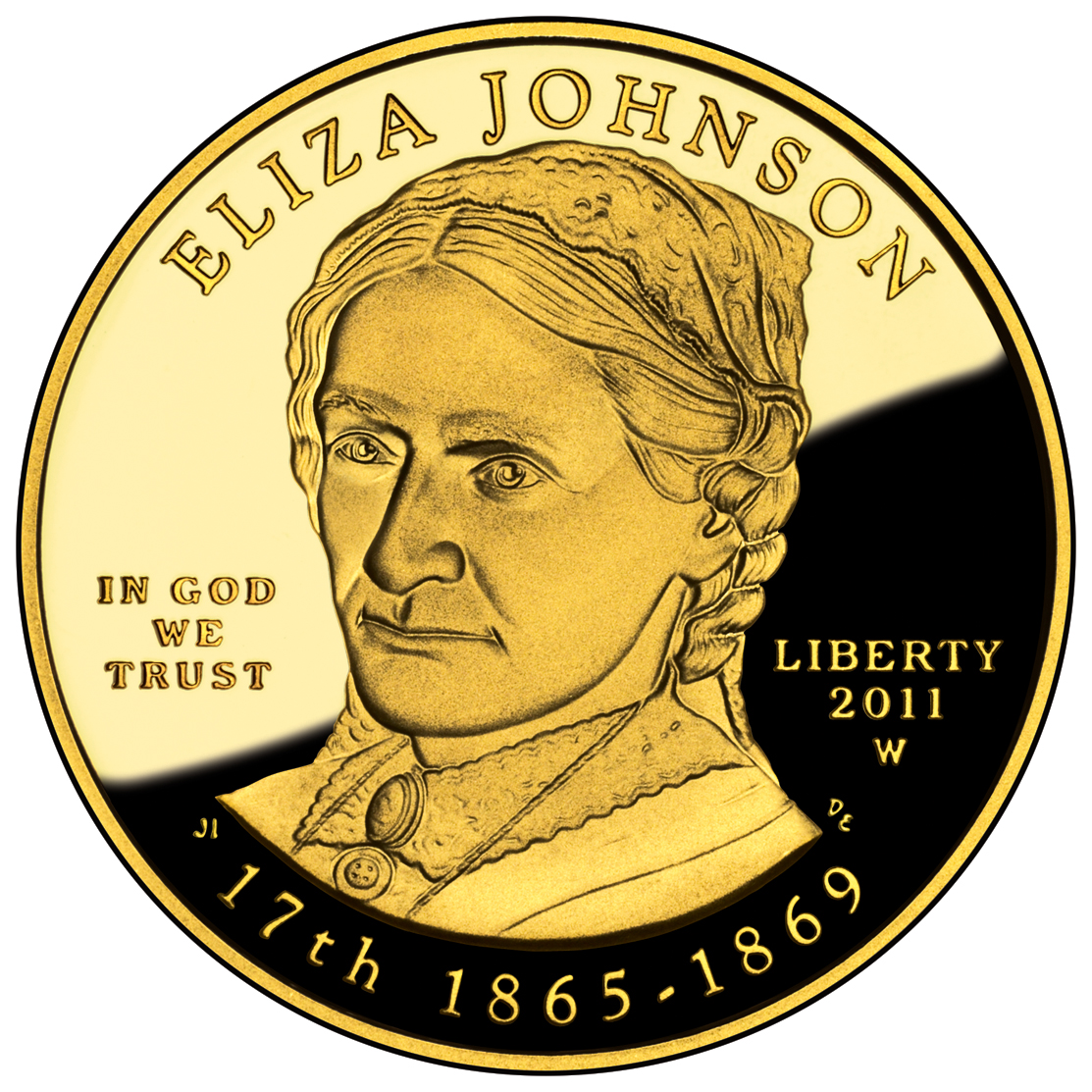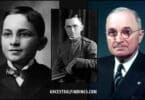Born October 4, 1810, Eliza McCardle would become the wife and First Lady of U.S. President Andrew Johnson. She was born in Leesburg, Tennessee, and, unusual for the time period, was an only child. Her parents were John McCardle and Sarah Phillips. Her father was a shoemaker and for a brief time, an innkeeper. He did not make much money, but it was enough to support himself, his wife, and his daughter with the basic necessities.
Not much is known of Eliza’s childhood or ancestry, and even professional historians and genealogists have been frustrated at the sheer lack of primary sources about her family. Her father’s date of birth is unknown, and nothing is known of his parentage, other than his father’s name was Phillip, and the surname is Scottish; Eliza herself always claimed she had Scottish ancestry. The only thing known about John McCardle with certainty is that he was born in Washington County, Tennessee.
Eliza’s mother is a bit more known than her father. Sarah Phillips was born in Marshfield, Massachusetts on January 29, 1789, and at some point, moved with her family to Tennessee, where she met Eliza’s father. After Eliza’s father died, date unknown, Sarah remarried in 1833 to Moses Whitesides, a silversmith. Sarah died in April 1854 in Greenville, Tennessee.
Eliza lost her father as a teenager, probably the same year she met her future husband, Andrew Johnson in 1826. Her mother continued to raise her on her own, moving to Greenville, Tennessee. Eliza attended the Rhea Academy there, and while the exact dates of her education are not known, she seems to have been a student there for quite some time, longer than most girls attended. While the academy had an impressive sounding name, it was only a one-room log cabin building at the time Eliza attended, and only girls were taught there. Boys in the area were taught at the local Presbyterian church building.
Eliza learned the basics of reading, writing, arithmetic, history, and philosophy, as well as English grammar, geography, composition, needlework, and rhetoric. She received a well-rounded, sound, but basic education compared to most other First Ladies. She was known to be a lover of reading. Her family wouldn’t have been able to afford books for the home, but the academy would have provided her with books to take home to use as needed.
One day in 1826, she was standing outside the academy, talking with some of her schoolmates, when she saw Andrew Johnson and his family moving into town on a horse-drawn wagon that carried all of their belongings. It seems to have been love at first sight, as the pair were married not long after when they were both still quite young. Andrew, especially, was far younger than most men at their first marriage when he married Eliza, being only 18 at the time, and Eliza was 16. They were married on May 17, 1827, at Eliza’s mother’s house in Greenville.
This young age at marriage gives Eliza the distinction of being the youngest of the First Ladies upon marrying. No other was or yet has been as young as she when they wed for the first time.
As she had been attending school, Eliza was much better educated than Andrew Johnson. She could read, write, and do arithmetic, and Andrew was just beginning to teach himself to read and spell a little bit when they got married. He was barely literate at their wedding. In fact, Andrew Johnson never went to school. Instead, Eliza taught him math and writing while he continued to teach himself to read. They did these lessons together during the early years of their marriage, while Andrew worked in a tailor shop, and Eliza read aloud to him in the evenings at home together.
Eliza and Andrew had five children together, three boys and two girls. All lived past childhood, but only three outlived Eliza. Their daughter Martha, who was their first child, also lived the longest of any of the children, to 73 years old. Their second child, Charles, died 13 years before Eliza at the age of 33; he was an assistant surgeon for the Union during the Civil War, and was thrown from a horse and killed during the war.
Their daughter Mary lived seven years past Eliza, to age 51. Their son Robert died seven years before Eliza, committing suicide at age 35 due to issues with alcoholism. Their son Andrew Johnson, Jr. died three years after Eliza, at the age of 27, due to unknown reasons, but likely tuberculosis, like his mother. He began showing symptoms as a young man.
When Andrew became involved in politics, Eliza was supportive of him and his ambitions. However, she herself did not like making public appearances. She was also in poor health by the time Andrew became president, suffering from tuberculosis. She left most of the White House hosting duties to her oldest child and daughter, Martha, while she mostly stayed in her bedroom.

First Spouse Program Gold Coin for Eliza Johnson. (Wikimedia)
Eliza made two official public appearances as First Lady. One was at a reception for Queen Emma of Hawaii in 1866, and the other was at a birthday celebration for Andrew in 1867. She did, however, make an attempt to at least make an appearance near the end of most White House social functions and to personally meet heads of state, and members of the public wrote to her, though she usually had her daughters handle her correspondence for her.
Eliza is not only the youngest-married First Lady, she was the first, and still one of only a handful of First Ladies, to be born into poverty. The vast majority of First Ladies have come from wealthy and influential families that made up the early American high society. The future presidents likewise mostly moved in these circles and were born into positions where they had power and influence from birth, which made the path to the presidency relatively easy for them. Eliza and Andrew Johnson were exceptions to the rule in actually having to work their way into this world, and then be accepted by it.
Despite Eliza’s years of poor health and confinement to home much of that time, she still, surprisingly, outlived Andrew by five and a half months. She died of tuberculosis on January 15, 1876, in Greenville, Tennessee.






